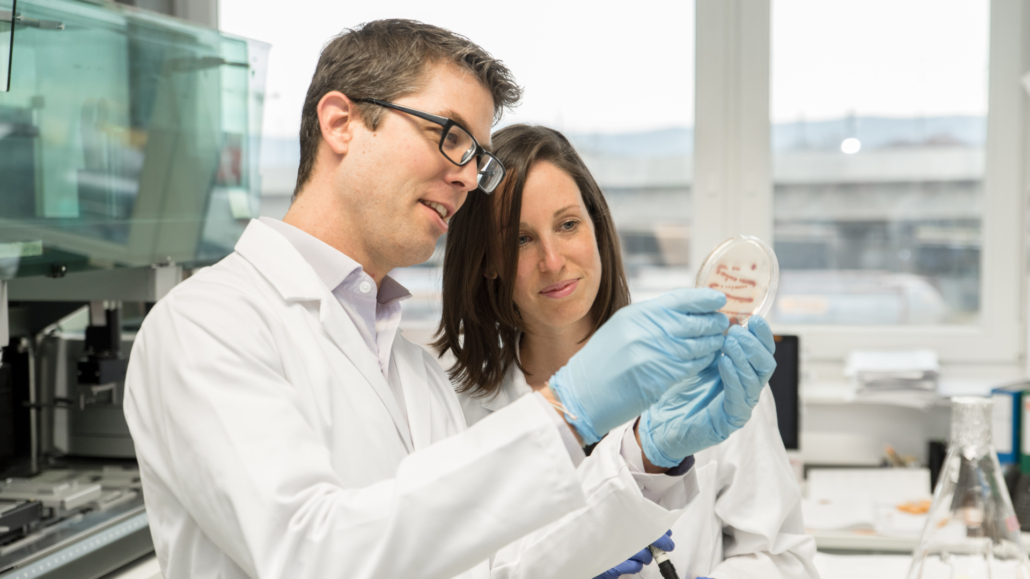Privately-owned
BioVersys AG, headquartered in Basel, is focusing on research and development of small molecules for multidrug-resistant bacterial infections with applications to fight antimicrobial resistance (AMR) and targeted microbiome modulation. The most advanced R&D programmes are in preclinical development for nosocomial infections (hospital infections), and tuberculosis in collaboration with GlaxoSmithKline (GSK) and a consortium of the University of Lille. In 2020, BioVersys plans to launch its first Phase I clinical trials, for its two leading programmes, which focus on
Acinetobacter baumannii and
Mycobacterium tuberculosis (TB) infections. The TB programme runs within the recently started TRIC-TB consortium and is financed with a total €6.9m under the umbrella of the new
European AMR accelerator initiated by the Innovative Medicines Initiative (IMI).
This new
CARB-X grant will help to further advance a third asset from the company’s R&D pipeline towards clinical stages. It provides the company with non-dilutive funding of €3.5m upfront and up to an extra €4.5m if certain milestones are met. BioVersys will use the money to push forward its BV200 series of molecules that has been developed using the company’s
TRIC technology (Transcriptional Regulator Inhibitory Compounds). These are not direct acting antibiotics, but rather a new class of molecules, capable of disarming bacteria such as
Staphylococcus aureus including MRSA of their harmful virulence factors including toxins, that cause serious skin infections that can spread to muscles, lungs and other body parts. According to the company, they have the potential to be used as stand-alone therapy as well as in combination with antibiotics, thus improving many available antibiotic therapies and supporting stewardship. The most advanced compounds are in Lead Optimisation.
We are delighted that CARB-X recognises the immense potential of BioVersys’ anti-virulence programme (BV200) through this funding award, said Marc Gitzinger, CEO and Co-Founder of BioVersys. The diversity in the challenge of AMR diseases requires us to broaden our approach beyond classical antibiotics, and further R&D investment in novel paradigm shifting approaches such as anti-virulence is vitally important.
Molecules of the BV200 class inhibit the transcriptional regulator AgrA which controls the production of harmful virulence factors including ?-toxin, phenol-soluble-modulin (PSM) and Panton-Valentine leukocidin (PVL) toxins that are directly linked to the severity of S. aureus-mediated skin and skin structure infections (SSSIs) and pneumonia. By preventing the expression of the toxins, the molecules have the potential to reduce tissue damage, disease progression and, consequently, reduce infection severity and mortality rates in patients. The BV200 series will initially be developed for skin and skin structure infections (SSSI) and pneumonia caused by S. aureus, including Methicillin-resistant S. aureus (MRSA).
Drug-resistant bacteria represent one of the greatest threats to public health globally. New approaches, like the BioVersys’ project, are urgently needed to help save lives and to curb the spread of drug-resistant bacteria, said Kevin Outterson, Executive Director of CARB-X, which is based at the Boston University School of Law. This project is in early stages of development but if successful and approved for use in patients, it would represent tremendous progress in the fight against drug resistance, by offering an alternative therapy to traditional antibiotics and also restoring the effectiveness of existing antibiotics.
The new investment adds another European company to the CARB-X portfolio, the world’s largest antibacterial development portfolio. Currently, it includes 30 projects in five countries. Since its inception in 2016, CARB-X has announced 49 awards exceeding US$155m, with the potential of additional funds if project milestones are met, to accelerate the development of antibacterial products. CARB-X is led by Boston University and funding is provided by the Biomedical Advanced Research and Development Authority (BARDA), the Wellcome Trust, Germany’s Federal Ministry of Education and Research (BMBF), the UK Department of Health and Social Care’s Global Antimicrobial Resistance Innovation Fund (GAMRIF), the Bill & Melinda Gates Foundation, and with in-kind support from National Institute of Allergy and Infectious Diseases (NIAID).



